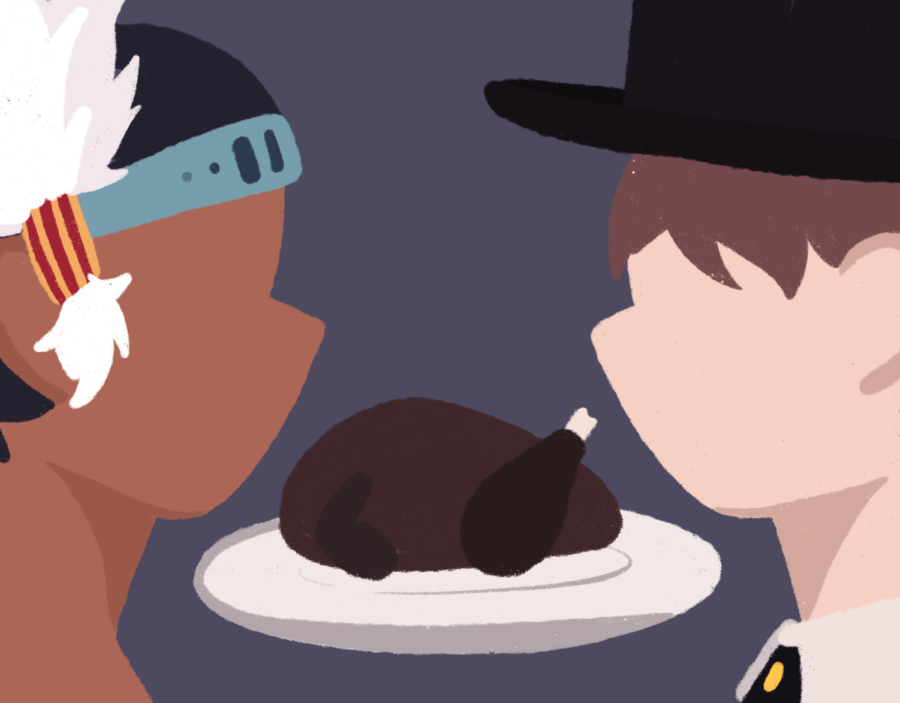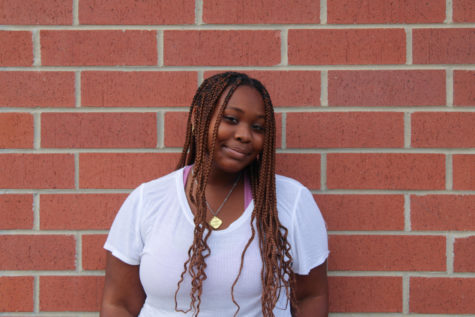Thanksgiving lies harm Native culture
The story behind Thanksgiving distorts Native American history with a falsified portrayal of British colonialism.
December 1, 2021
Marked on the fourth Thursday of November, Thanksgiving is a time for American families to celebrate what and whom they are thankful for.
Some classic and innocent traditions include eating turkey, watching football, and breaking wishbones in hopes for good luck. However, for some, Thanksgiving is nothing but a bitter reminder of their ancestors scorned. Myths of friendship and fair play surround the American holiday in a way that some Native Americans feel erases their rich and long history.
As children, many were told a warped version of the Thanksgiving story, one that was littered with inaccuracies. The unidentifiable Indians of the story are cast in a friendly, passive light, conceding happily and willingly, handing over their land to the white colonizers of the era. In this version of the story, they sat down, taught them how to live on their land, and promptly disappeared, never to be seen or heard from again.
Anyone who interests themselves in learning about the true history behind Thanksgiving would quickly find the fallacies in this story. For starters, the tribe of Native Americans living on the land were not nameless nobodies. The Wampanoags are the name behind the story, and the tribe, along with others, resided on American soil long before Europeans discovered it for themselves. Some Native sources date the discovery of what is now American land some 10,000 years before European settlement.
The Wampanoags did not take kindly to the swift and aggressive shift of power, which is a falsehood that persists with the telling of the Americanized version of the tale. Wampanoags Indians were cheated out of their rightful home, and were subject to their resources being taken and exploited for European benefit. Today, Native Americans feel the holiday falsely represents them in history, and sugarcoats a historic traumatic event.
“No, I don’t celebrate Thanksgiving. Personally, I think of Thanksgiving as [a day] when colonizers used certain ways to kill my people off,” senior Patrick Keryte said. Keryte is a Native American student at Richard Montgomery, and feels like his schooling throughout the years has been whitewashed and blatantly incorrect when it comes to Thanksgiving and similar topics. “I have been taught different legends through my grandparents, and their grandparents before them,” Keryte said.
When Europeans began to boast that it was they who discovered America, the true story got lost in between the lies. American pride and patriotism boomed, allowing for Native history to be forgotten.
What’s true is although stories about harmony persist, there was no peaceful way to steal land from an entire civilization. The King Phillips war is not very well known, but its effects and grueling history are very real. The brutal Colonial-Indian war of 1675 lasted a year, and was a rebellion against the ever persistent English settlers trying to claim their land. Thousands of Native Americans were killed in the bloody battle, and in turn many tribes died out or were forced to go into hiding. Survivors of the battle passed on the stories to their children, and kept the history alive, which is why, thankfully, the truth is still circulating today.
The portion of the tale where everyone sat around a big table and enjoyed a meal together comes majorly from propaganda. Publications about celebratory feasts went out, including most notably, one from the Revolutionary Alexander Young. He was one of the first to mention a Thanksgiving dinner, and the idea took off. Americans were happy to show patriotism, and assert dominance over the immigrants of the time period. They were also pleased to think the idea of Manifest Destiny was just and yielded results. Bloody colonialism was transformed into a peaceful passing of land to its rightful owners, and without many respected notables around to combat the story, it spread like wildfire.
No matter the light reality casts Americans in, hard truth must persist. Erasing history can not and should not become common practice.
No one is calling for an end to Thanksgiving and the wholehearted traditions that come with it. That sort of performative activism doesn’t promote any real change. However, education and celebration of the real Thanksgiving story, especially at young ages is crucial to protect and preserve Native culture, as well as begin to eliminate the discomfort many people feel when faced with the American holiday.




